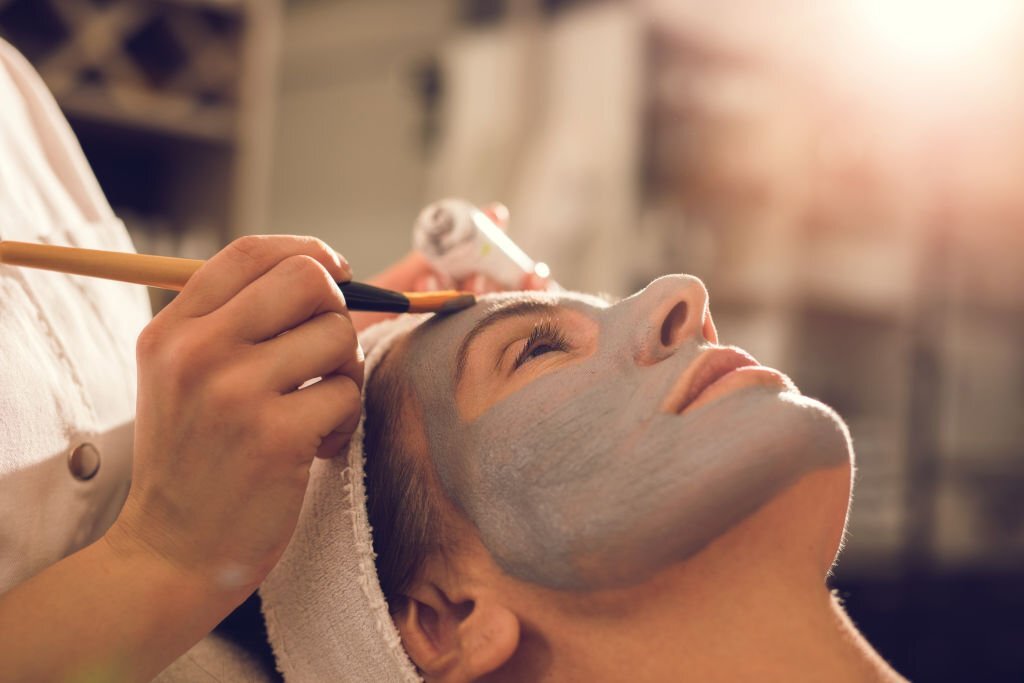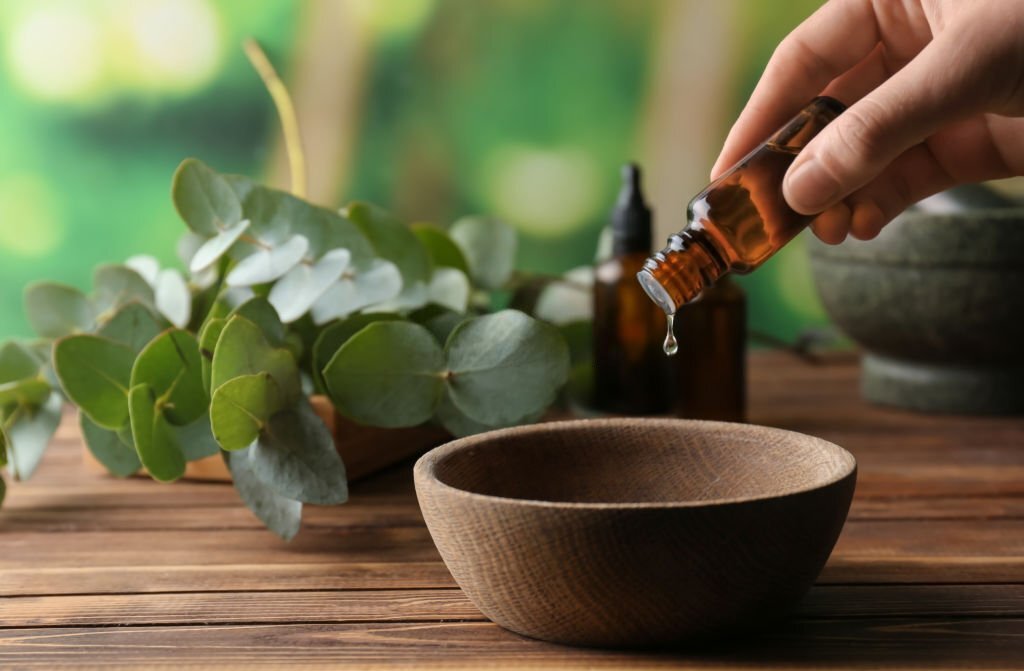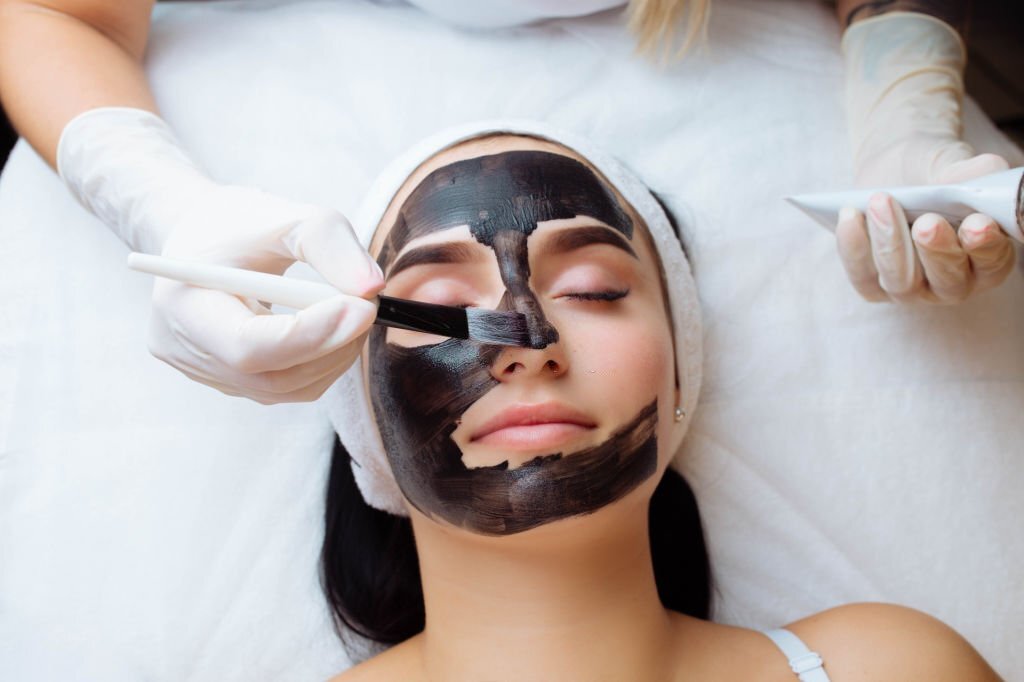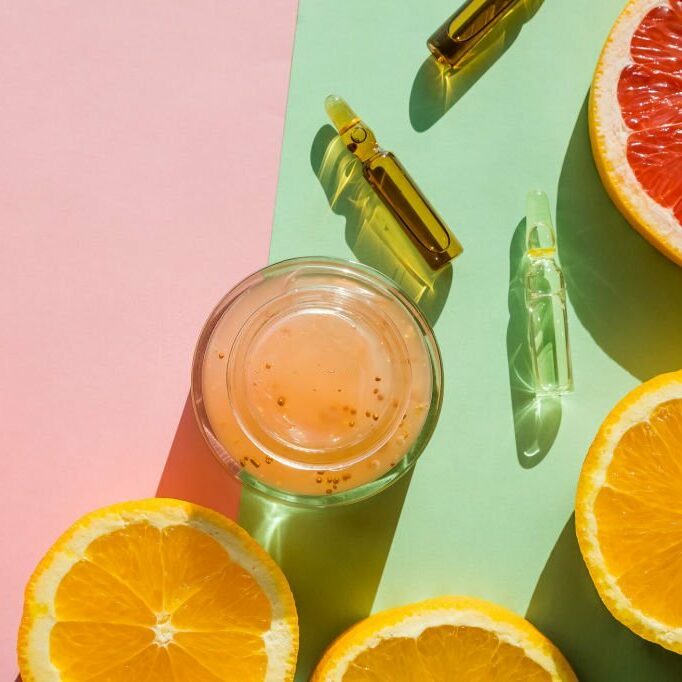Facial skin varies widely from person to person. From dry and flaky to oily and shiny, everybody’s skin is a little bit different. Skin type determines which products and ingredients are the best for you. Not sure what type of skin you have? Think about how your skin would feel midday without a moisturizer. If your skin feels tight and uncomfortable, you have dry skin. If your skin is comfortable without a moisturizer, you are on the oilier side. If areas of your skin feel comfortable, while other areas feel dry, you have combination skin. Another good test is to run your finger across your T-zone (chin, nose and forehead) midday. Do you see oil on your finger? If so, you most likely have combination to oily skin. Keep in mind that skin type can change during the year depending on the season. You may be dry during the winter, and oily during the summer.
Learn more about facemasks below and find out which mask and ingredients are right for you!
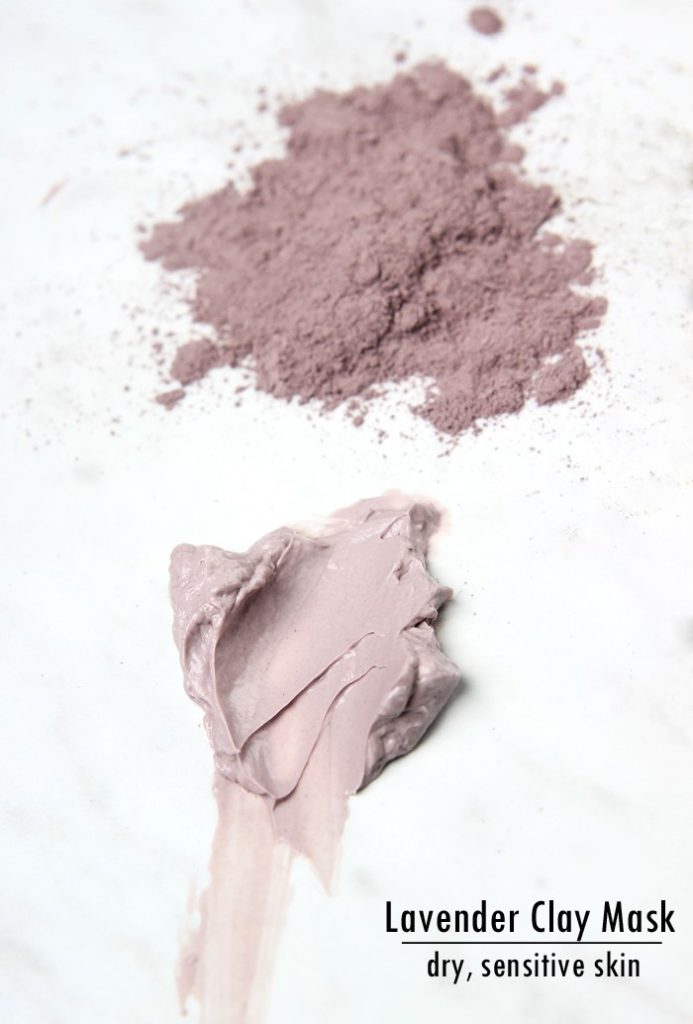
Masks
Lavender Clay Face Mask
This mask is formulated for dry skin. It contains the least amount of kaolin clay to lessen the oil absorbing properties. Purple Brazilian clay adds a beautiful color. The mask contains argan oil, which is well known for its intense moisturizing properties and large amounts of vitamin A and E. Evening primrose extract is wonderful for soothing dryness, making it a good choice for dry skin. Lavender essential oil gives this face mask a soft, calming scent. If your skin is extremely sensitive, you may want to omit the essential oil from the recipe. Because this mask does not contain a large amount of clay, it will only dry on the skin if a very thin layer is applied.
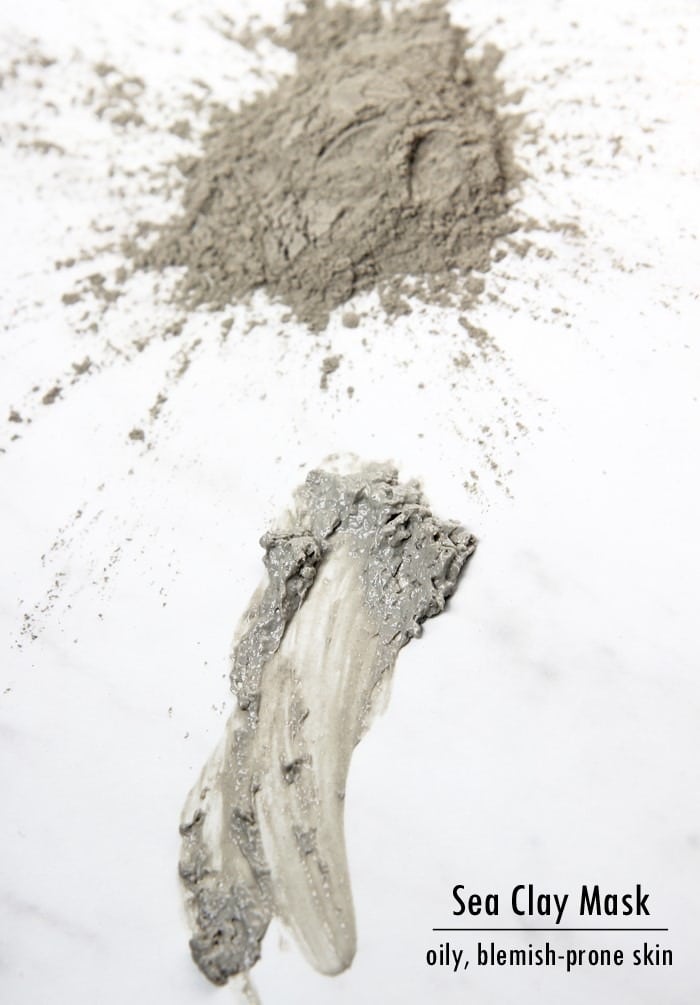
Sea Clay Face Mask
The Sea Clay Mask is formulated for oily skin and contains the largest amount of clay. Equal amounts of kaolin clay and sea clay are used. Kaolin clay is a fantastic gentle clay, while sea clay adds some serious oil absorbing properties. It has a thick texture and dries completely on the face after about 15 minutes. Tea tree essential oil adds a refreshing scent, and some studies claim it has antimicrobial properties. Hazelnut oil is ideal for oily skin as it absorbs quickly with no greasy residue. This mask also contains ginseng extract, which comes from the ginseng root and is commonly used for homeopathic treatments.
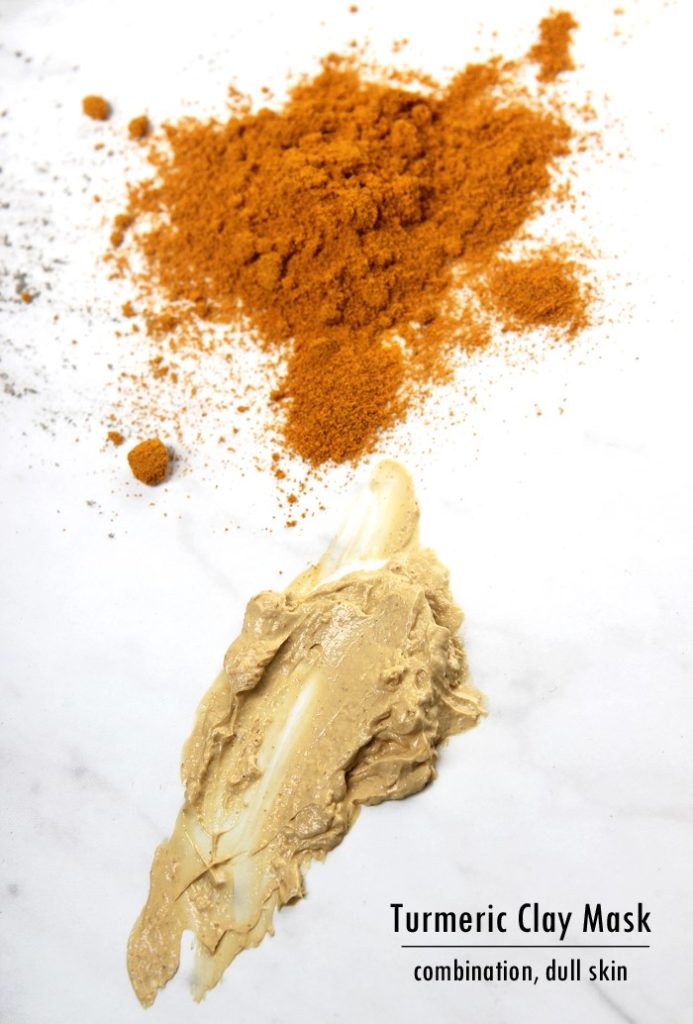
Turmeric Clay Face Mask
This mask is formulated for combination to oily skin, or if you are concerned about redness or dullness. The only clay in this mask is kaolin clay, which has mild oil absorbing properties. This mask does contain enough clay to dry on the skin, giving that classic clay mask feeling. Turmeric contains curcumin, which is an anti-oxidant and is thought to have anti-inflammatory properties. Don’t worry about this mask leaving your skin yellow; it washes off cleanly with warm water. This mask contains carrot extract and carrot seed essential oil, both of which are rich in vitamins A and E.
Ingredients
Clays
Sometimes the best skincare ingredients are right below your feet. Clays are known for their amazing cleansing and purifying properties. They have been used on the skin for centuries, and they’re still popular today.
In general, clays are soft, fine-grained mineral substances. While the properties of each one varies, they’re most commonly used in skincare because of their absorption properties. Clay pulls excess oil from the skin so it feels clean and refreshed.
Depending on your skin type, one clay may be better suited for you than another. Find all our clays here, and learn which one is best for your project below.
Dry/normal skin – rose clay, kaolin clay, Brazilian clay
Normal/oily skin – sea clay, green zeolite clay, French green clay, bentonite clay, Brazilian clay
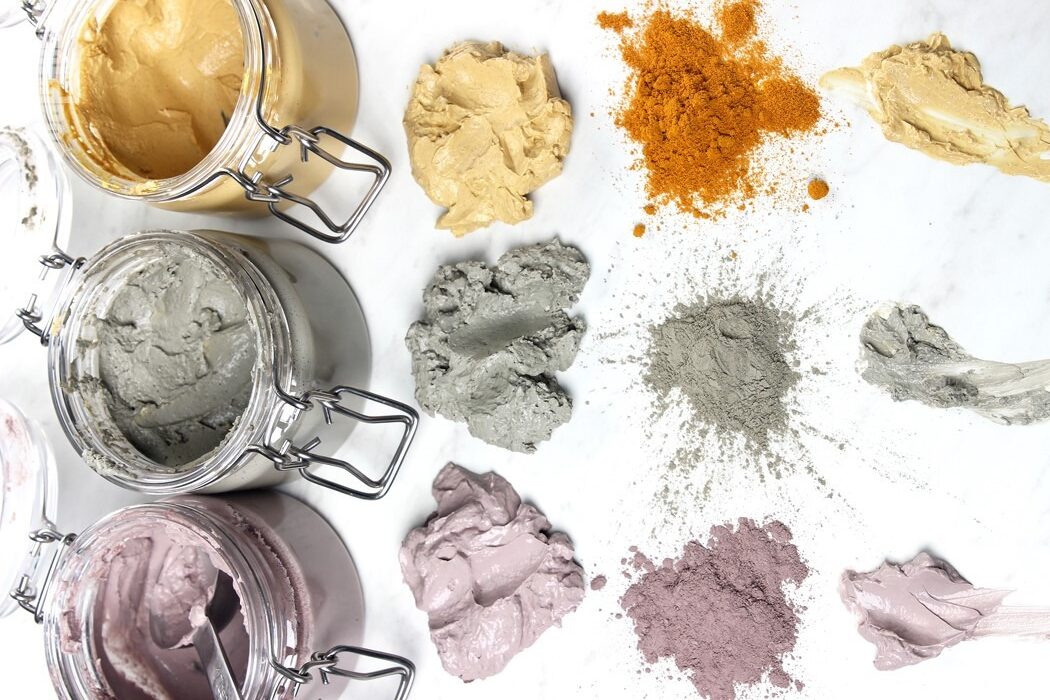
Essential Oils
Using essential oils in facemasks is a popular practice that offers numerous benefits for the skin. Essential oils are highly concentrated plant extracts that are known for their therapeutic properties, including antibacterial, antifungal, and anti-inflammatory effects. When added to a facemask, essential oils can help to nourish, moisturize, and rejuvenate the skin.
One of the main benefits of using essential oils in facemasks is their ability to reduce inflammation and redness, which can help to calm irritated skin and reduce the appearance of redness. Additionally, some essential oils like have antibacterial and antifungal properties, which can help to fight acne-causing bacteria and prevent breakouts.
Another benefit of using essential oils in facemasks is their ability to hydrate and nourish the skin. Some essential oils are rich in antioxidants and fatty acids, which can help to hydrate and plump the skin, leaving it looking and feeling more youthful and radiant. Furthermore, other essential oils are known for their anti-aging properties, which can help to reduce the appearance of fine lines and wrinkles.
lavender, chamomile, and frankincense – anti-inflammatory
tea tree and eucalyptus – antibacterial and antifungal
rose, geranium, and neroli – hydrate and plump the skin
sandalwood and patchouli – reduce the appearance of fine lines and wrinkles
Exfoliants
Exfoliation is key to maintaining smooth skin. It removes oil and dead skin, which allows moisturizer to absorb more easily.
The exfoliant you choose depends on your recipe. Fine exfoliants work well for the face and large exfoliants work well for the body, especially dry areas like elbows and feet. It’s also based on personal preference – the best way to find out what you like is to experiment.
Acids
Keeping your skin hydrated is one of the most important parts to achieving healthy glowing skin. You can achieve hydrated skin by implementing humectants into your skin care products. Hydrating your skin shouldn’t be confused with moisturizing your skin. These are two different things and I believe that hydration often is overshadowed by moisturizing, since most people seem to think they are the same thing, but they are not.
- Hyaluronic acid
Since hyaluronic acid is a water-based ingredient, that makes it a humectant. Its ability to draw moisture into the skin is outstanding. Hyaluronic acid is definitely a must-have in everybody’s skincare routine – no matter what skin type you have.
- .Vitamin C/Ascorbic Acid Powder
The powerful vitamin C is known for its ability to effectively fight acne without drying out or damaging the skin, making it an excellent cosmetic ingredient for skin care. It effectively helps to lighten the skin, even out the complexion and reduce acne scars, age spots and stretch marks. By stimulating collagen production, vitamin C increases skin firmness, reducing the appearance of fine lines and wrinkles.

